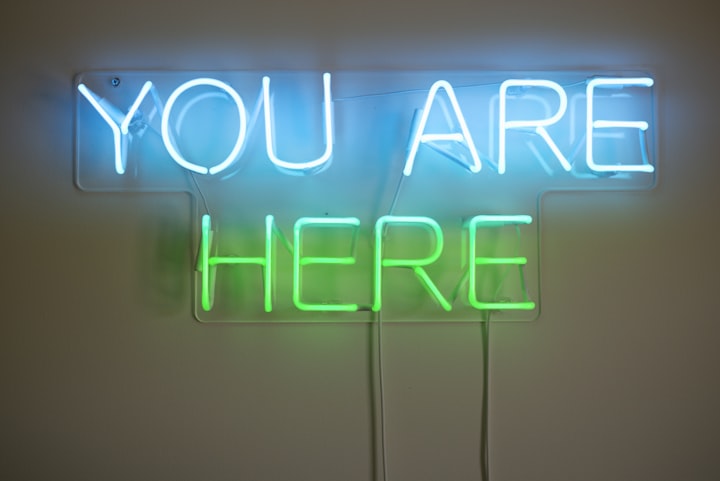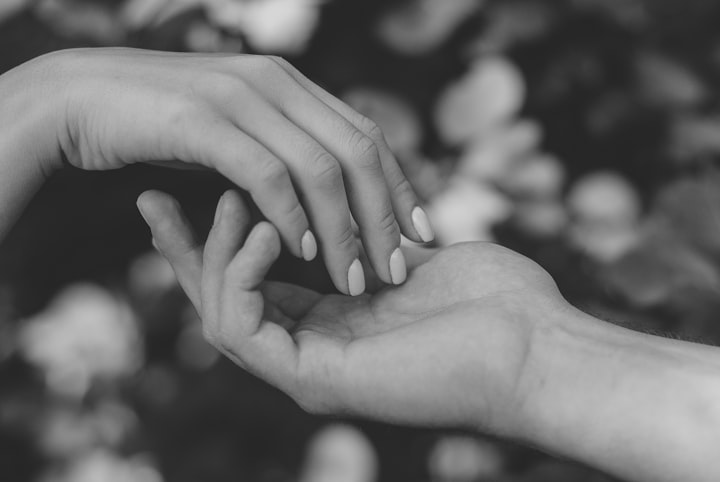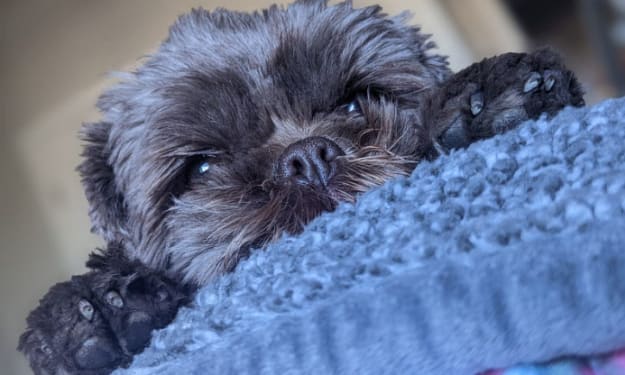How I Use Mindfulness to Keep me Honest, Avoid Emotional Debates, and Search for Commonality
Unity of the Left and Right... is it Possible?

Disclaimer: Please keep in mind this is my personal journey and I try to explain how this works for me. I am not a mental health professional. I cannot offer professional advice. If you are struggling, I recommend you reach out to your doctor to find the appropriate treatment for yourself. If you’re not in therapy or haven’t consulted a doctor or therapist, this may be helpful, but you need a professional to guide you. I do see a therapist. I follow cognitive behavioral therapy. It works for me. It may not for you…
I engage certain people on the internet too often. It comes from the idea that I cannot ignore falsehoods or perceived ignorance. I have been doing this less frequently, but I still find myself in debates with someone who only wants to repeat conspiracy theories without providing reputable sources or evidence. I am beginning to view my behavior as contradictory to my path to good mental health. I want to engage, but I need to be mindful of how I engage. I also need to be mindful of whom I engage. The idea behind this is to recognize your triggers and “rewire” your brain to react in a more mental health positive way. When I find myself debating someone who rejects clear evidence and whose only defense is to repeat themselves and the same false information I need to see it right away and stop. I need to see the importance of stepping away when I know well enough that continuing will only fuel my own self destructive behaviors. My peace shouldn’t be lost at the expense of needing to prove my point.
If you’re unfamiliar with my stories focusing on my mental health journey, I offer a summarization. I struggled with depression starting sometime in my 20s. I attempted suicide in the early 2000s. I got on meds and some therapy at that time. I eventually felt OK and stopped taking the meds. I would still seek out therapy from time to time, however, I never found a therapist that felt right for me. One tried to talk me into admitting myself into a rehab. It might have been legit, but I felt she was reading into things more (I never went to rehab and quit drinking and cocaine use on my own – I have an occasional drink these days). A major job loss, jumping between a couple of jobs, then moving to Atlanta to return to the job I had lost led to troublesome times, but I managed to come out of it once I moved. It was short lived. A failed, rushed relationship affected me more than I thought. Stress from the job increased including some that was self-inflicted. This led to me getting committed to a mental health facility where I discovered mindfulness. A required outpatient group therapy period came immediately after my stay at the facility. I learned the most in that environment. I was put on meds again and found a great therapist. I got lucky the first one I chose was amazing… is still amazing. I moved from the burbs to the city and that increased my joy. I lost my job because of covid and likely because of my inability to just keep quiet. I was surprised how different the loss felt the second time around. I was happier. I was stress free. I realized corporate life was part of my past. It was an unhealthy life for me. I decided to finally pursue being a writer and have been working on a few novels (yes, a few because I had them in my head for years). I stuck with practicing mindfulness and decided as part of my writing I would also share this experience. I was doing so with friends on social media already. I figured why not share it with a wider audience and maybe something I have shared will help in some way. That sums up the journey so far. There are definitely some stories in between, but for the sake of this writing, I’m leaving them out. Some of my earlier writings share them if you want to check them out on Vocal.
Circling back to triggering myself by engaging in pointless debates, I made the decision some time ago to avoid such discussions with random people on the internet in random comments sections. I have good periods when I avoid it and I have had weaker periods when I couldn’t overcome my obsession with needing to correct what I see as wrong. I know my true intent is to help people understand, but I get too emotional in responses. This is especially true when the response to my initial comments are met with anger and insult. I foolishly respond with the same. I at some point will realize I’m not being mindful. I am following an old pattern that has always led to me feeling angry and miserable. I found myself doing that very thing today. It left me to wanting to share this with others who may find themselves arguing with trolls or anyone who would rather rage with you than have a conversation.
I am able to avoid these situations by practicing mindfulness. I focus on their words and avoid reading emotion in them. If I feel they are only responding emotionally or see that they will not accept facts, obvious facts, over opinions then I disengage. I will try to leave my last response with an explanation free of emotion and a positive comment towards the other person. Today I was not doing this, but after a few responses I recognized my behavior pattern and apologized for my emotional responses, reenforced my logical responses with sources and facts, then I told them I wished them a blessed day. I’m not religious, but I like the intent of blessed day vs. good day. It seems a bit more genuine unless, of course, you use it when being facetious in a “bless your heart” sort of way. I meant it sincerely and I always try to leave a positive comment that is honest in its intent.
I share this because I failed. I did eventually see what was happening and returned to practicing what I know of mindfulness. I’m no expert at this. I still read up on how to work this and I have a couple of books I’ve yet to read. I’ve been more focused on writing fiction and sharing this mental health journey with some opinion pieces sprinkled in between. I’m working on focusing on writing rather than engaging debates on social media. Writing is what I’ve chosen to do as my career moving forward. It makes me happy. It also helps me stay in the moment and improves my ability to be mindful. I suggest keeping a journal for anyone who wants to follow and learn a mindful approach. For me, mindfulness has been the most important skill when it comes to keeping my mental health at acceptable levels.
What do I mean by acceptable levels? I don’t try to push away sadness or grief or anger. These are normal emotions. I only try to be mindful of how I process those emotions and my reactions to them. I look at whether they lead to angry outbursts or passive aggressive actions towards others. I listen to how I speak and watch how I write. I do so with intent. The intent it so remain focused and positive. When I have lost friends, I grieve. I cry. I share my pain. I let it go. It may sound easier when I write the words. I assure, it is never that easy. I still carry the sadness and grief for loved ones lost. That is something most of us know all too well. Acceptance of the loss is one thing. It is important. It does not mean we no longer feel the loss. This is another hardship that can be worked through by being mindful. Acceptable levels means allowing ourselves to feel. This is not about burying or ignoring emotions. It is, in fact, the opposite. We are beings of instinct and emotion, not just pure logic and reason. Some of us experience these things at different levels. I can only explain what levels I am able to cope with.
When you begin to get a better understanding of how to use mindfulness, I think you can begin to see how positivity is an excellent secondary tool. They both can help us stay in the present. Positivity doesn’t mean ignoring the negative influences in our lives nor does it mean we must absolutely see the bright side of everything and refrain from negative responses. Some may feel differently, but I believe that we have to recognize and process negative experiences in a healthy way. Our negative responses must be tempered. They should be expressed constructively, not emotionally. This is another difficult skill to learn. I have to admit I am often terrible at doing this. I do find that when I am able to do so, my own mental health is better and the interaction with others is less emotional and hostile. It sometimes can lead to wonderful exchange of ideas and understanding. When I see that it isn’t likely to go that way, I’m learning it is best to say “have a blessed day” and move on. It is the same approach when I say you should stay present. When I see I’m obsessing over the past or needlessly predicting the worst possible future outcomes, I step away and get myself back in the present.
Our modern life is filled with disagreement and division. As much as many would like to see unity, there are those who will not try. They have enemies and you’re either a friend or an enemy. It is sad. I would like to claim that my own actions do not reflect a friend or foe mentality. I would like to, but I cannot. There are times I see someone’s ideology as something that must be opposed at all costs. Some of these should be. However, how we oppose them is important. Anger should be removed when possible. Reasonable discussion should be the tool to learn and find an understanding. There will be times this is impossible. Some people hate due to race, religion, creed, sexual orientation, or gender identity. Some just hate anything they do not understand. Some just hate. I still believe we should try to reach them. I also accept that not all can be reached and when their ideology is anchored by hate… it is difficult to not fight them. I think we should. I don’t know the best way to do so. I only know that if we keep going at each other with rage and hatred, it doesn’t end well. It gets us nowhere. If we listen to the arguments, they’re all about the past and trying to apply beliefs from decades, even centuries, ago to life how it is today. It isn’t the same. New solutions are necessary. Change is necessary. Learning from the past is different than using it to keep anger or hold on to an ideology or faith that has long outlived its time.
My intent with this article it to suggest that we avoid endless debates. I do not mean walk away from a debate you think you will lose. Losing is another way we learn. It’s the idea of success being the result of our failures. I’m referring to avoiding debates when the other side will not acknowledge their own loss and use logical fallacies to debate. Or they get angry and just insult you (a fallacy, of course). I’m saying if you see an opportunity for common ground even if you must concede a bit, it is worth it. It can start a foundation for becoming a more unified people. I don’t mean just in the United States. This should be a global goal. United, but free. United with multiple cultures to share, rather than one being seen as the superior culture (or race). I don’t expect to see this in my lifetime. I will not stop searching for ways to follow that path, though.
About the Creator
Tom Stasio
I have always wanted to write. Covid-19 caused me to be unemployed and with plenty of free time. I hope what I share is relatable and/or entertaining.






Comments
There are no comments for this story
Be the first to respond and start the conversation.